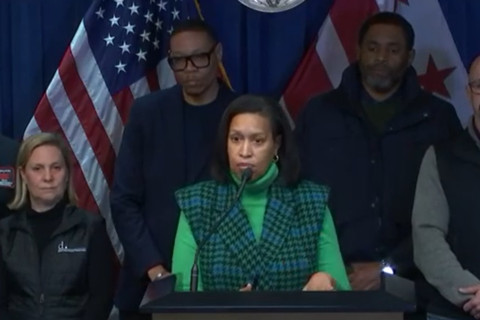Oxfam America, a global organization dedicated to fighting inequality and ending poverty and injustice, has released its annual report called the Best States to Work Index (BSWI), detailing the best and worst states for workers in the United States.
This year, D.C. topped the list.
The report tracks 27 different policies across three major themes: wages, worker protections and rights to organize.
Kaitlyn Henderson, report author and senior researcher at Oxfam, said the index focuses on year-to-year changes in policies that would be most impactful and necessary for low-wage workers and working families. Oxfam tracks which states have stepped in to fill the gaps left by federal inaction.
“All of the policies that we track in our index are either nonexistent or insufficient at the federal level. So the ultimate goal of this research is to help encourage federal policymakers to raise the standard for all workers, regardless of where they live in the United States,” she said.
Henderson said when looking at policies under the worker protections and rights to organize categories, they’re simply tracking whether or not certain policies exist on a state level. If a state has a policy, they get a credit, if they don’t, no credit.
But she said, when it comes to the wage category, things get a bit more complicated. Henderson said states will get credit for how far the minimum wage goes to cover the cost of living for a family in that area.
“We’re also looking at how far the tipped wage goes toward the minimum wage. … We’re also looking at the proportion of unemployment supports and how far that goes to covering cost of living for folks, especially since unemployment payments is a system created to help workers who lose their job through no fault of their own.”
Henderson stressed how the BSWI can serve as a policy cheat sheet for state lawmakers to improve the landscape for workers.
D.C. ranks No. 1, but workers may still feel the heat
One thing that put D.C. on top, according to Henderson, is the minimum wage.
At $17.50 per hour, D.C. has the highest minimum wage in the country, covering “just over 40% of the cost of living for a family of four with one wage earner.”
In addition, Henderson said D.C. got a perfect score on worker protections — with laws such as a paid leave program, a domestic worker bill of rights and policies against sexual harassment at work.
“We would never claim that, for example, minimum wage in D.C. is enough,” Henderson said. “We would say it’s the strongest in the country, but it is not enough, especially not for a family. So if folks in D.C. are feeling like, ‘Wow, I’m really still having a hard time making ends meet,’ I would say our research definitely reflects that.”
Henderson said D.C. residents can use the BSWI as a score card to make sure they have all the rights they’re owed.
“If they feel like, ‘Wow, this is a policy that exists that I don’t experience,’ then there are definitely elected officials for them to contact,” Henderson said.
For the six years Oxfam has released the index, D.C. has always ranked in the top five states. This year, Maryland was No. 15 with Virginia falling into 26th place.
“We really found that states that have more of these labor policies are very strongly correlated with more positive measures of well-being,” Henderson said. “There are fewer instances of poverty, of food insecurity, of infant mortality in those states that have robust labor laws. … When we’re talking about labor law, it doesn’t exist in a vacuum. We really are actually talking about the well-being of communities.”
Get breaking news and daily headlines delivered to your email inbox by signing up here.
© 2024 WTOP. All Rights Reserved. This website is not intended for users located within the European Economic Area.








